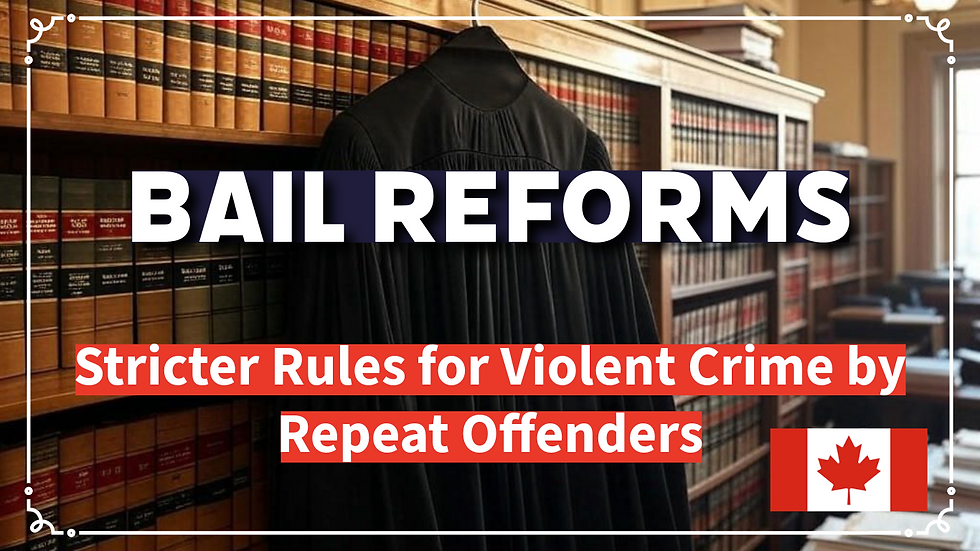Secondary Evidence : Principles of Admissibility
- M.R Mishra

- Dec 3, 2023
- 3 min read
The Supreme Court recently outlined principles regarding the admissibility of secondary evidence under Sections 63 and 65 of the Indian Evidence Act (IEA). In a case involving an unstamped sale agreement, the Court, consisting of Justices Abhay S. Oka and Sanjay Karol, determined that the agreement wasn't subject to stamp duty, thus Section 35 of the Indian Stamp Act didn't bar its admissibility.
Advocate Chetan Pathak represented the Plaintiff, while Additional Solicitor General K M Nataraj represented the Defendant. The dispute arose from a property sale agreement, leading the Plaintiff to file a suit for specific performance. The Trial Court initially allowed a copy of the agreement as secondary evidence, but a review petition by the Defendant claimed inadequate stamping, invoking Section 35, which the Trial Court and High Court upheld. The Plaintiff appealed to the Supreme Court.
The Supreme Court emphasized the importance of presenting primary evidence first, as per Section 63 of the IEA. It noted that if the original document is available, it must be produced and proved following prescribed methods.
The Court highlighted the need for proper explanation when the original isn't available. Secondary evidence is permissible when unable to produce the original without fault, with copies requiring foundational evidence of authenticity.
The Court clarified that the mere production and marking of a document as an exhibit do not prove its contents; it must be proven according to the law. Section 65(a) of the IEA allows secondary evidence when the opposing party possesses the original but refuses to produce it. The Court referred to various cases and ultimately allowed the appeal, setting aside the impugned order.
Issue in Brief:
Supreme Court Ruling: The Supreme Court clarified principles for admitting secondary evidence under Sections 63 and 65 of the Indian Evidence Act (IEA).
Stamp Duty Issue: In a case involving an unstamped sale agreement, the Court determined that the agreement wasn't subject to stamp duty, making Section 35 of the Indian Stamp Act inapplicable.
Legal Representation: Advocate Chetan Pathak represented the Plaintiff, and Additional Solicitor General K M Nataraj represented the Defendant.
Dispute Background: The case originated from a property sale agreement, leading to a specific performance suit by the Plaintiff after a dispute with the Defendant.
Trial Court Decision: Initially, the Trial Court permitted a copy of the agreement as secondary evidence, but a review petition claimed inadequate stamping under Section 35, leading to a different decision.
High Court Affirmation: The High Court upheld the Trial Court's decision, prompting the Plaintiff to appeal to the Supreme Court.
Principles of Admissibility: The Court emphasized presenting primary evidence first, as per Section 63 of the IEA, requiring production and proof of the original document according to prescribed methods.
Secondary Evidence Conditions: The Court highlighted that secondary evidence is permissible when unable to produce the original without fault, with copies needing foundational evidence of authenticity.
Explanation Requirement: Proper explanation for non-availability of the original document is essential for allowing secondary evidence, as outlined in the relevant sections.
Proof of Contents: Mere production and marking of a document as an exhibit do not constitute due proof of its contents; it must be proven according to the law.
Section 65(a) Provision: Section 65(a) of the IEA allows secondary evidence when the opposing party possesses the original but refuses to produce it.
Case References: The Court referred to specific cases, including Neeraj Dutta v State, Yashoda v K. Shobha Rani, M. Chandra v M. Thangamuthu, Surendra Krishna Roy v Muhammad Syed Ali Matwali Mirza, and H. Siddiqui v A. Ramalingam.
Appeal Outcome: The Supreme Court allowed the appeal, setting aside the impugned order.
Thanks for visiting!!






Comments